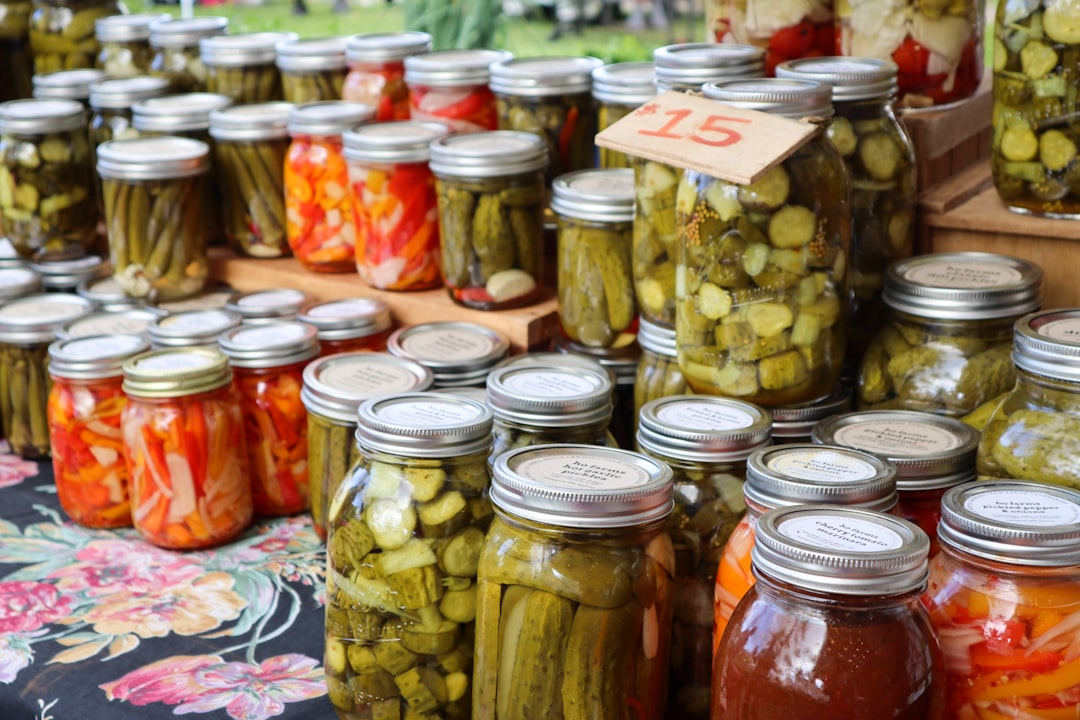We all love to spoil our furry friends with tasty treats! But sometimes, it’s hard to know what’s safe and what’s not. If you’re a pickle enthusiast and your dog has been giving you those puppy-dog eyes while you enjoy a crunchy, sour delight, you’ve probably wondered: “Can dogs eat pickles?” Let’s dive into the briny details and find out!
Can Dogs Eat Pickles? The Short Answer
The answer is a bit complex. Technically, pickles aren’t inherently toxic to dogs. However, they are generally not recommended as a regular treat due to their high sodium content and potentially harmful ingredients like garlic and spices. While a tiny bite of a plain pickle might not cause immediate harm, regularly feeding your dog pickles can lead to health problems.
Why Pickles Aren’t Ideal for Dogs
Pickles are cucumbers that have been preserved in a brine, which usually includes vinegar, salt, spices, and sometimes sugar. While cucumbers themselves can be a healthy snack for dogs, the pickling process adds ingredients that aren’t beneficial and can even be harmful.
High Sodium Content
One of the biggest concerns is the high sodium content in pickles. Too much sodium can lead to dehydration, increased thirst, and even sodium ion poisoning (salt poisoning) in dogs. Smaller dogs are particularly vulnerable to the negative effects of high sodium intake.
Harmful Spices and Ingredients
Many pickles contain spices like garlic, onions, and mustard seeds, which are toxic to dogs. Garlic and onions belong to the Allium family and can damage a dog’s red blood cells, leading to anemia. Even small amounts of these ingredients can be problematic over time.
Vinegar and Acidity
While vinegar isn’t directly toxic to dogs, the high acidity can upset their stomach and lead to digestive issues like vomiting or diarrhea. Sensitive dogs are more likely to experience these problems.
Potential for Pickling Spice Toxicity
Some pickling spices, beyond onion and garlic, might be harmful or irritating to dogs. It’s often difficult to know precisely what’s in a particular brand of pickle, making it safer to avoid them altogether.
Potential Health Benefits (Limited)
While pickles are generally not recommended, there are a few very minor potential benefits to consider. However, these benefits are far outweighed by the risks.
Hydration (from the Cucumber Initially)
Cucumbers themselves are hydrating, and pickles retain some of that water content. However, the high sodium content counteracts this benefit, as it can lead to dehydration.
Probiotics (Fermented Pickles)
Some pickles are fermented, meaning they contain beneficial probiotics. These probiotics can support gut health. However, you can provide probiotics to your dog through safer and more appropriate sources like dog-specific probiotic supplements.
When Pickles Are a Hard No
Avoid feeding your dog pickles if they contain any of the following:
- Garlic
- Onions
- Mustard Seed
- Artificial Sweeteners (especially Xylitol, which is extremely toxic)
- Hot Peppers (can cause digestive upset)
Safe Introduction (If You Must)
If you’re absolutely determined to let your dog try a pickle, follow these guidelines:
- Choose a plain pickle: Opt for a plain dill pickle with no added spices or sweeteners.
- Give a tiny amount: A piece no bigger than your thumbnail is sufficient.
- Monitor your dog: Watch for any signs of digestive upset, such as vomiting, diarrhea, or loss of appetite.
- Don’t make it a habit: Pickles should never be a regular part of your dog’s diet.
Alternatives to Pickles for Dogs
Instead of pickles, consider these healthy and safe snack options for your dog:
- Cucumber slices: A great low-calorie and hydrating treat.
- Carrot sticks: Crunchy and good for dental health.
- Apple slices (without seeds): A source of vitamins and fiber.
- Blueberries: Packed with antioxidants.
- Sweet potato: Cooked and plain, a good source of vitamins.
Pros and Cons of Feeding Pickles to Dogs
- Pros:
- May offer minimal hydration.
- Fermented pickles may offer minimal probiotics (but better sources exist).
- Cons:
- High sodium content can lead to dehydration and salt poisoning.
- Contains spices like garlic and onions that are toxic to dogs.
- High acidity can upset their stomach.
- Pickling spices might contain harmful ingredients.
Frequently Asked Questions
What happens if my dog eats a whole pickle?
If your dog eats a whole pickle, monitor them closely for signs of sodium ion poisoning (excessive thirst, vomiting, diarrhea, incoordination). Contact your veterinarian immediately if you notice any concerning symptoms. The size of your dog and the ingredients in the pickle will determine the severity of the reaction.
Can pickles cause diarrhea in dogs?
Yes, the high acidity and salt content of pickles can easily cause diarrhea in dogs, especially those with sensitive stomachs. If your dog develops diarrhea after eating a pickle, withhold food for 12-24 hours and provide plenty of fresh water. If the diarrhea persists, consult your veterinarian.
Are sweet pickles safer for dogs than dill pickles?
No, sweet pickles are not necessarily safer. While they might have less sodium, they often contain added sugars or artificial sweeteners, which are also not good for dogs. Some artificial sweeteners, like xylitol, are extremely toxic to dogs.
Can puppies eat pickles?
No, puppies should not eat pickles. Their digestive systems are more sensitive than adult dogs, and the high sodium content and spices can be particularly harmful to them.
Are there any dog-friendly pickle recipes?
While you might find recipes for “dog-friendly pickles,” it’s generally best to avoid them. Focus on giving your dog safe and healthy treats like cucumber slices or other dog-approved vegetables.
While a tiny nibble of a plain pickle might not be immediately dangerous, pickles are generally not a good treat option for dogs. The high sodium content and potentially toxic ingredients far outweigh any minimal benefits. Stick to safe and healthy alternatives like cucumber slices, carrots, or blueberries to keep your furry friend happy and healthy!

